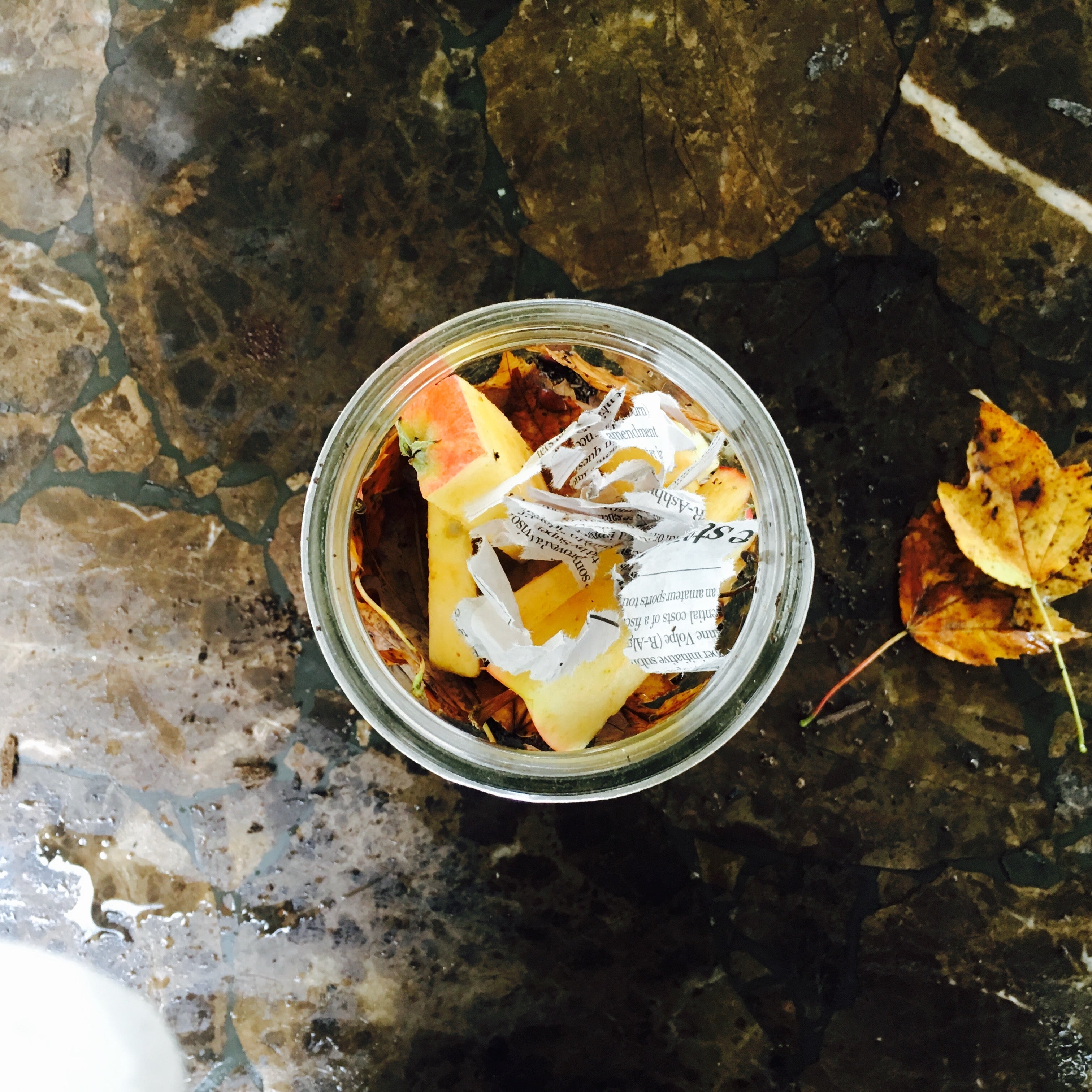If you'd like to introduce your kids to composting for your family's own nutrient-rich soil, now is the perfect time to get started. A true lesson in patience, composting leftover kitchen scraps, newspapers, and yard trimmings can benefit your whole family in many ways—especially your kids.
Bring science to life with a few games and activities focused on composting for kids as the leaves drop. Here's how to get started.
Jump Right in
First, make a huge pile of leaves and spend some time jumping in it together. This won't benefit your compost formula, but it'll do your heart good. Playing in leaves is the best part of fall for kids (and grownups, honestly) and can teach everyone how nature's gifts serve multiple purposes.

After you've played, collect leaves for the first lesson in composting for kids.
Craft a Soil-arium
The best composting activity for kids is to do some actual composting! This activity is perfect because kids can watch decomposition with their own eyes. The results are equally rich, and an extra benefit is lifelong knowledge for your young soil-ologists.
First, gather your supplies:
- A wide-mouth glass jar for each child
- Organic yard debris (such as fallen leaves, grass clippings, and dirt)
- Old newspaper
- Fruit and vegetable peels, cores, and scraps from the kitchen
- 1 cup rainwater
- A permanent marker

To get started, have kids toss a handful of soil into their respective jars. Next, let them put in a bit of newspaper and then add kitchen scraps. Finally, add a layer of dead leaves and grass clippings. Repeat these deposits until each jar is mostly full.

If your kids feel the need to express themselves by including more newspaper or going easy on the fruit scraps, let them, as long as you keep one control mixture to monitor as a standard.

Finally, add your rainwater and cap the whole concoction. Write each participant's name upon his or her lid, and poke holes in the lid for oxygen. Draw a fill line on the glass to indicate the top of the jumbled ingredients. Lastly, set your composting experiments on a sunny windowsill within view but out of reach.

Every two weeks, mark a line to show the "new" top as nature does her work and the contents settle. Be sure to label it with the date, too, so you can watch the progress of your microbes.
Before your very eyes, your organic matter will turn into a nutrient-rich soil that in about 12 weeks will be ready for your springtime garden. Every time I've done this project with my kids, I've seen worms thriving in our jars—a benefit even I couldn't have predicted!
Role-Playing
Another fun game that teaches composting for kids is role-play. We start by checking out books from the library that focus on microbes, and we read one every day. Our favorite book for this game is called Tiny Creatures: The World of Microbes.

Then whenever the kids feel up to it, we act out the narrative (yes, even single-celled characters can have personalities and adventures!), using household items.

Anything can be a prop here. The kids use my bendy curlers as life-sized actinomycetes, which save the day as "good bacteria" in the soil.

Online Gaming
Even screen-oriented kids can still learn about composting in all its rotting, festering goodness. The University of Manchester has an interactive website dedicated to the science of composting microbes to challenge and entertain kids of all ages.

The games are addictive, however, and you may find yourself cheering on the fungi for hours on end.
How do you take advantage of the falling leaves to teach your kids about the circle of life? What other games are fun for fall composting? When you find a good book about composting, share it with other readers by tweeting your favorite to @TomsofMaine.
Image source: Bethany Johnson
This article was brought to you by Tom's of Maine. The views and opinions expressed by the author do not reflect the position of Tom's of Maine.
